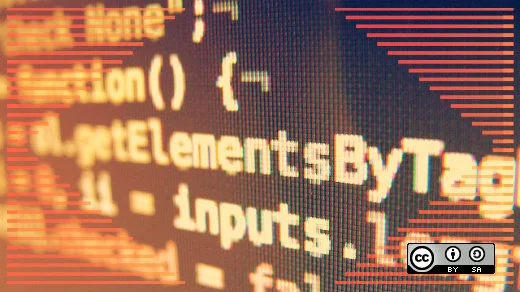String comparison is a fundamental operation in programming and is often quizzed during interviews. These strings are a sequence of characters that are immutable which means unchanging over time or unable to be changed.
Java has a number of methods for comparing strings; this article will teach you the primary operation of how to compare strings in Java.
There are six options:
- The == operator
- String equals
- String equalsIgnoreCase
- String compareTo
- String compareToIgnoreCase
- Objects equals
The == operator
== is an operator that returns true if the contents being compared refer to the same memory or false if they don't. If two strings compared with == refer to the same string memory, the return value is true; if not, it is false.
String string1 = "MYTEXT";
String string2 = "YOURTEXT";
System.out.println("Output: " + (string1 == string2));
Output: falseThe return value of == above is false, as "MYTEXT" and "YOURTEXT" refer to different memory.
String string1 = "MYTEXT";
String string6 = "MYTEXT";
System.out.println("Output: " + (string1 == string6));
Output: trueIn this case, the return value of == is true, as the compiler internally creates one memory location for both "MYTEXT" memories, and both variables refer to the same memory location.
String string1 = "MYTEXT";
String string7 = string1;
System.out.println("Output: " + (string1 == string7));
Output: trueIf you guessed right, you know string7 is initialized with the same memory location as string1 and therefore == is true.
String string1 = "MYTEXT";
String string4 = new String("MYTEXT");
System.out.println("Output: " + (string1 == string4));
Output: falseIn this case, the compiler creates a new memory location, even though the value is the same for string4 and string1.
String string1 = "MYTEXT";
String string5 = new String(string1);
System.out.println("Output: " + (string1 == string4));
Output: falseHere, string5 is a new string object initialized with string1; hence, string1 == string4 is not true.
String equals
The string class has a String equals method to compare two strings. String comparison with equals is case-sensitive. According to the docs:
/**
* Compares this string to the specified object. The result is {@code
* true} if and only if the argument is not {@code null} and is a {@code
* String} object that represents the same sequence of characters as this
* object.
*
* @param anObject
* The object to compare this {@code String} against
*
* @return {@code true} if the given object represents a {@code String}
* equivalent to this string, {@code false} otherwise
*
* @see #compareTo(String)
* @see #equalsIgnoreCase(String)
*/
public boolean equals(Object anObject) { ... }Let's see a few examples:
String string1 = "MYTEXT";
String string2 = "YOURTEXT";
System.out.println("Output: " + string1.equals(string2));
Output: falseIf the strings are not the same, the output of the equals method is obviously false.
String string1 = "MYTEXT";
String string3 = "mytext";
System.out.println("Output: " + string1.equals(string3));
Output: falseThese strings are the same in value but differ in case; hence, the output is false.
String string1 = "MYTEXT";
String string4 = new String("MYTEXT");
System.out.println("Output: " + string1.equals(string4));
Output: trueString string1 = "MYTEXT";
String string5 = new String(string1);
System.out.println("Output: " + string1.equals(string5));
Output: trueThe examples in both these cases are true, as the two values are the same. Unlike with ==, the second example above returns true.
The string object on which equals is called should obviously be a valid string object and non-null.
String string1 = "MYTEXT";
String string8 = null;
System.out.println("Output: " + string8.equals(string1));
Exception in thread _____ java.lang.NullPointerExceptionThe above evidently is not a good code.
System.out.println("Output: " + string1.equals(string8));
Output: falseThis is alright.
String equalsIgnoreCase
The behavior of equalsIgnoreCase is identical to equals with one difference—the comparison is not case-sensitive. The docs say:
/**
* Compares this {@code String} to another {@code String}, ignoring case
* considerations. Two strings are considered equal ignoring case if they
* are of the same length and corresponding characters in the two strings
* are equal ignoring case.
*
* <p> Two characters {@code c1} and {@code c2} are considered the same
* ignoring case if at least one of the following is true:
* <ul>
* <li> The two characters are the same (as compared by the
* {@code ==} operator)
* <li> Applying the method {@link
* java.lang.Character#toUpperCase(char)} to each character
* produces the same result
* <li> Applying the method {@link
* java.lang.Character#toLowerCase(char)} to each character
* produces the same result
* </ul>
*
* @param anotherString
* The {@code String} to compare this {@code String} against
*
* @return {@code true} if the argument is not {@code null} and it
* represents an equivalent {@code String} ignoring case; {@code
* false} otherwise
*
* @see #equals(Object)
*/
public boolean equalsIgnoreCase(String anotherString) { ... }The second example in equals (above) is the only difference from the comparison in equalsIgnoreCase.
String string1 = "MYTEXT";
String string3 = "mytext";
System.out.println("Output: " + string1.equalsIgnoreCase(string3));
Output: trueThis returns true because the comparison is case-independent. All other examples under equals remain the same as they are for equalsIgnoreCase.
String compareTo
The compareTo method compares two strings lexicographically (i.e., pertaining to alphabetical order) and case-sensitively and returns the lexicographical difference in the two strings. The docs describe lexicographical order computation as:
/**
* Compares two strings lexicographically.
* The comparison is based on the Unicode value of each character in
* the strings. The character sequence represented by this
* {@code String} object is compared lexicographically to the
* character sequence represented by the argument string. The result is
* a negative integer if this {@code String} object
* lexicographically precedes the argument string. The result is a
* positive integer if this {@code String} object lexicographically
* follows the argument string. The result is zero if the strings
* are equal; {@code compareTo} returns {@code 0} exactly when
* the {@link #equals(Object)} method would return {@code true}.
* <p>
* This is the definition of lexicographic ordering. If two strings are
* different, then either they have different characters at some index
* that is a valid index for both strings, or their lengths are different,
* or both. If they have different characters at one or more index
* positions, let <i>k</i> be the smallest such index; then the string
* whose character at position <i>k</i> has the smaller value, as
* determined by using the < operator, lexicographically precedes the
* other string. In this case, {@code compareTo} returns the
* difference of the two character values at position {@code k} in
* the two string -- that is, the value:
* <blockquote><pre>
* this.charAt(k)-anotherString.charAt(k)
* </pre></blockquote>
* If there is no index position at which they differ, then the shorter
* string lexicographically precedes the longer string. In this case,
* {@code compareTo} returns the difference of the lengths of the
* strings -- that is, the value:
* <blockquote><pre>
* this.length()-anotherString.length()
* </pre></blockquote>
*
* @param anotherString the {@code String} to be compared.
* @return the value {@code 0} if the argument string is equal to
* this string; a value less than {@code 0} if this string
* is lexicographically less than the string argument; and a
* value greater than {@code 0} if this string is
* lexicographically greater than the string argument.
*/
public int compareTo(String anotherString) { ... }Let's look at some examples.
String string1 = "A";
String string2 = "B";
System.out.println("Output: " + string1.compareTo(string2));
Output: -1
System.out.println("Output: " + string2.compareTo(string1));
Output: 1String string1 = "A";
String string3 = "a";
System.out.println("Output: " + string1.compareTo(string3));
Output: -32
System.out.println("Output: " + string3.compareTo(string1));
Output: 32String string1 = "A";
String string6 = "A";
System.out.println("Output: " + string1.compareTo(string6));
Output: 0String string1 = "A";
String string8 = null;
System.out.println("Output: " + string8.compareTo(string1));
Exception in thread ______ java.lang.NullPointerException
at java.lang.String.compareTo(String.java:1155)
String string1 = "A";
String string10 = "";
System.out.println("Output: " + string1.compareTo(string10));
Output: 1String compareToIgnoreCase
The behavior of compareToIgnoreCase is identical to compareTo with one difference: the strings are compared without case consideration.
String string1 = "A";
String string3 = "a";
System.out.println("Output: " + string1.compareToIgnoreCase(string3));
Output: 0Objects equals
The Objects equals method invokes the overridden String equals method; its behavior is the same as in the String equals example above.
String string1 = "MYTEXT";
String string2 = "YOURTEXT";
System.out.println("Output: " + Objects(string1, string2));
Output: falseString string1 = "MYTEXT";
String string3 = "mytext";
System.out.println("Output: " + Objects(string1, string3));
Output: falseString string1 = "MYTEXT";
String string6 = "MYTEXT";
System.out.println("Output: " + Objects(string1, string6));
Output: trueString string1 = "MYTEXT";
String string8 = null;
System.out.println("Output: " + Objects.equals(string1, string8));
Output: false
System.out.println("Output: " + Objects.equals(string8, string1));
Output: falseString string8 = null;
String string9 = null;
System.out.println("Output: " + Objects.equals(string8, string9));
Output: trueThe advantage here is that the Objects equals method checks for null values (unlike String equals). The implementation of Object equals is:
public static boolean equals(Object a, Object b) {
return (a == b) || (a != null && a.equals(b));
}Which method to use?
There are many methods to compare two strings. Which one should you use? As a common practice, use String equals for case-sensitive strings and String equalsIgnoreCase for case-insensitive comparisons. However, one caveat: take care of NPE (NullPointerException) if one or both strings are null.










Comments are closed.